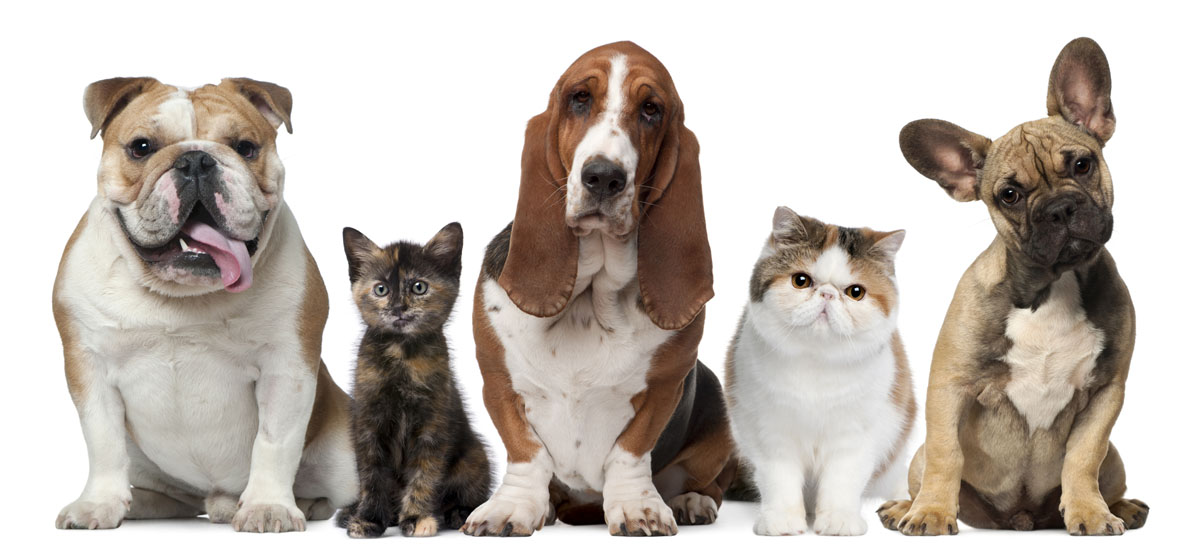Pet Questions with Heath Vets
Chris Troughton is clinical director of Heath Vets in Rhiwbina. He’s here to answer all your pet questions. If you’d like to ask Chris a pet-related question, drop us a line at editor@livingmags.co.uk
How important is protein to a dog? I’ve come across lots of pet foods that seem to be made mostly of anything other than meat and I’ve fed my dog on a few of these over the years without any noticeable difference to his demeanour or health.
I think there is a slight confusion here between ‘meat’ and ‘protein’. Although meat is (largely) protein, protein is also found in many other foods, including eggs, milk, nuts, grains, even vegetables and grass. Protein is an essential part of the diet of all animals. Every species is different in the way they digest food, and what is a good source of protein for one might be useless for another – for example, people don’t thrive on a diet of grass but cows do.
Dogs are able to digest some plant material (principally grains) to extract the proteins and other nutrients. Because grain is much cheaper than meat, it is often used to supply a fair proportion of the protein in poorer quality dog food. Some dogs seem to be able to do well on this lower quality food, but many do not thrive, and we often see a dramatic improvement in coat condition and general demeanour when we switch dogs from a high-cereal/low-meat to a high-meat/low-cereal diet. The premium quality foods for dogs are made with much higher proportions of meats, and there are now several brands made without using grains at all.
Another aspect of the meat content of food, and for your dog this is probably more important, is taste! Meat is tasty, and the more meat there is in the food, the tastier it is and the more he will enjoy it.
At Heath Vets, we have our own range of high quality grain-free dog food, made with 50% meat content. If you bring the coupon on this page to the surgery, you will get 20% off your first bag!
I have a two year old cat who seems to enjoy playing when I go to bed rather than during the day when he sleeps. This has a knock-on effect when I’m trying to sleep and I often spend the next day very tired! Do you have any suggestions as to how I solve this problem?
Cats are of course nocturnal hunters. They naturally spend much of the daytime asleep, and are active in the evening and night hours, so wanting to play at night is really quite normal, although not very convenient for their human companions! You need to provide plenty of interaction and play in the evenings to give him lots of stimulation and exercise. Cat toys such as plastic wands with feathers dangling on a string are really good for this, and so are laser pointer toys. Some cats will chase (and even retrieve) balls of crumpled up paper. When your cat is left alone in the day, provide some entertainment for him – hide treats or cat biscuits in the specially designed balls and toys, so he has to bat them around to make the food fall out. This simulates hunting behaviour and will help to tire him out.
It’s also important not to reinforce your cat’s nocturnal play by inadvertently rewarding it with your attention. If you get up and play with him for a while or even shoo him away, he’ll more likely do it tomorrow! Take away noisy toys (for example ping pong balls that bounce on a hard floor) and replace them with stuffed toys scented with cat-nip. You might be able to move his living quarters further away from your bedroom. If all else fails, buy some ear-plugs!
How often would you say cats cough up hairballs? My cat seems to be bringing a lot up over the last few months and I don’t know why.
All cats groom and ingest large amounts of hair in the process. Normally this passes straight through the digestive tract and we see nothing of it but some cats vomit hairballs from time to time, often accompanied by a loud retching sound (which is why they are often said to have ‘coughed up’ the hairball). Unsurprisingly, long haired cats suffer more with the problem. I wouldn’t worry about it if it’s only one or twice a month. However, more frequent hairballs can be a sign of gastric problems, and it might be worth getting your cat checked over, especially if there are any other symptoms such as weight loss or non-hairball vomiting.

